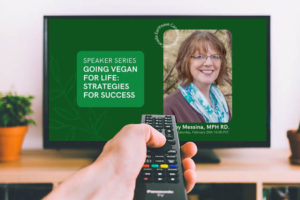My first baby is due in June. I fully expect to feed him exclusively breast milk.
However, this isn’t always possible.
The WHO recommends exclusive breastfeeding for the first six months starting within an hour of birth.1 The Childbearing Society advises that the options for feeding babies in order of preference are: first, directly from the woman’s breast; second, pumped milk from her breast; third, donor milk; and fourth, formula.
In the age of COVID-19, although breast milk is likely not a method of transmitting the virus,2 my local hospitals are not taking donor milk. For information on how milk banks normally work, contact La Leche League Canada at https://www.lllc.ca/.
This leaves two options. Formula, or private donations of breast milk.
Let’s consider formula first. A quick look and you will see the three most common ingredients are corn syrup, palm oil and derivatives, and milk derivatives. Soy based formulas often even use casein and whey proteins (derived from cow’s milk). It is possible, but very difficult to find formulas that have no animal products, and they are all expensive. When I saw the ingredients, I was dismayed that this is what is available for babies. Like many of you, I avoid these ingredients in my diet for health and ethical reasons, so I was shocked that they would be the sole source of nutrition for a minimum of 6 months. On top of this, there is the issue of the inherent cruelty and violence of cow and goat dairy operations.
Thankfully there is another option. Human Milk for Human Babies groups can be found on Facebook:
“The mission of Human Milk 4 Human Babies Global Network is to promote the nourishment of babies and children around the world with human milk. We are dedicated to fostering community between local families who have chosen to share breast milk.”3
The donors often have an over-supply of breastmilk which they package, freeze and make available for free for babies in need. Note, it is illegal to sell or buy human breast milk in Canada.
Participants in a milk sharing arrangement must take full responsibility for the outcome of milk sharing. The private donor system relies on trust and human connection. According to the Human Milk for Human Babies website, all parties are encouraged to practice full disclosure, informed choice and to be responsible for doing their own research on the risks, benefits and alternatives of milk sharing.4 The organization provides advice on asking for medical test results from donors and how to treat donor milk at home.
I have a postcard on my fridge that reads “Not your mom, Not your milk” accompanied by a picture of a cow, a mantra which makes sense when considering using the milk from another species. But in the case of breastfeeding and donated human milk, it’s such a beautiful and natural thing for a woman to share her breast milk with human babies, and it’s wonderful that this option is available.
[1] https://www.who.int/health-topics/breastfeeding#tab=tab_1
[2] https://www.cdc.gov/coronavirus/2019-ncov/need-extra-precautions/pregnancy-breastfeeding.html
[3,4] http://hm4hb.net/about-us/
Photo by Filip Mroz on Unsplash







